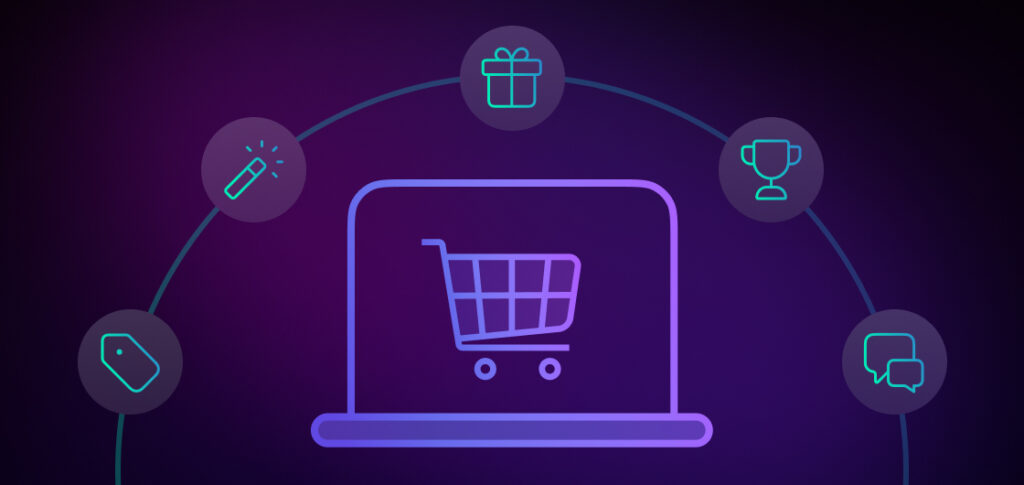
- Customer Experience
- Customer Loyalty
- Customer Marketing
- Customer Retention
- Ecommerce Marketing
- Loyalty
The Biggest Ecommerce Trends to Follow in 2025 (According to the Experts)
Megan Wenzl | Dec 2, 2024
Sep 24, 2024 | 7 minute read
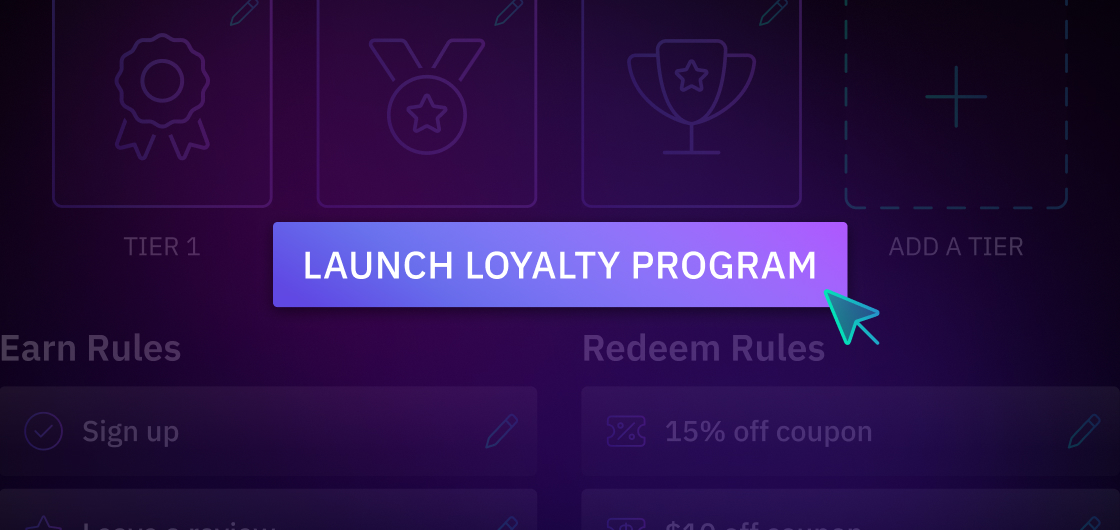
Megan Wenzl
Content Marketing Manager
A loyalty program can be a powerful tool for Shopify brands with goals to increase customer retention and lifetime value. By offering incentives to new and long-term customers, these programs can help build a strong community and keep buyers engaged long after the first purchase.
However, before deciding to build and launch a loyalty program, it’s important to understand if it’s the right strategy for your business model and customer base.
There are several factors to consider, including whether or not a percentage of your customers already make repeat purchases and if you have the time and resources to build an engaging program. In addition, crafting a loyalty program that truly adds value for your customers involves understanding their unique preferences and motivations, ensuring the program feels rewarding and relevant for your customer base.
In the competitive DTC ecommerce landscape, brands face unique challenges such as high customer acquisition costs and the common issue of customers making only a single purchase. Implementing a loyalty program may offer a solution to these challenges, but is it the right strategy for your brand?
Let’s find out.
It can be a difficult decision — is a loyalty program the right play within your overall marketing strategy?
In a recent Okendo webinar about loyalty programs, Jason Anderson, Chief Operating Officer at Andzen said, “Loyalty is something that realistically all brands can leverage. Everyone wants to build loyalty with their customer base. Having a formal program is often a logical next step for a merchant to take to engage with their customers.”
The following factors are your guide to knowing if you’re ready to invest in a loyalty program.
The first step in deciding if a loyalty program is suitable for your brand is to analyze current customer purchasing patterns. Are most of your customers only buying once? If so, a loyalty program can be the solution to seeing repeat purchases.
In a recent webinar on loyalty programs, Scott Goodman, Director of Partner Strategy at Okendo said, “If you do a deep dive of your customer base, do not be surprised if you see 70-90% of customers only purchasing once in 12 months. That is very common. That’s where loyalty [programs] drive impact and change.”
A loyalty program can incentivize and motivate customers to purchase two, three, or many more times. In addition to numerous purchases, customers are much less likely to churn if they make a second purchase.
Dixxon saw an increase in repeat purchases with their loyalty program.
How did they do it? Dixxon named their tiered loyalty program the Dixxon Insider Loyalty Fam (DILF). Okendo’s team of loyalty experts assisted Dixxon in creating a customized and engaging program. Based on analysis, Okendo’s strategic services team recommended a fourth VIP tier to Dixxon’s program. Named the Hall of Fame tier, it exhibits the exclusivity vibe of the brand. When customers reach this tier, they get an exclusively designed flannel, designed to keep customers motivated to move up tiers.
Because of Dixxon’s engaging program, on average, loyalty program members place up to six orders compared to just two orders for non-members. In addition, Dixxon saw a 16x ROI with Okendo Loyalty.
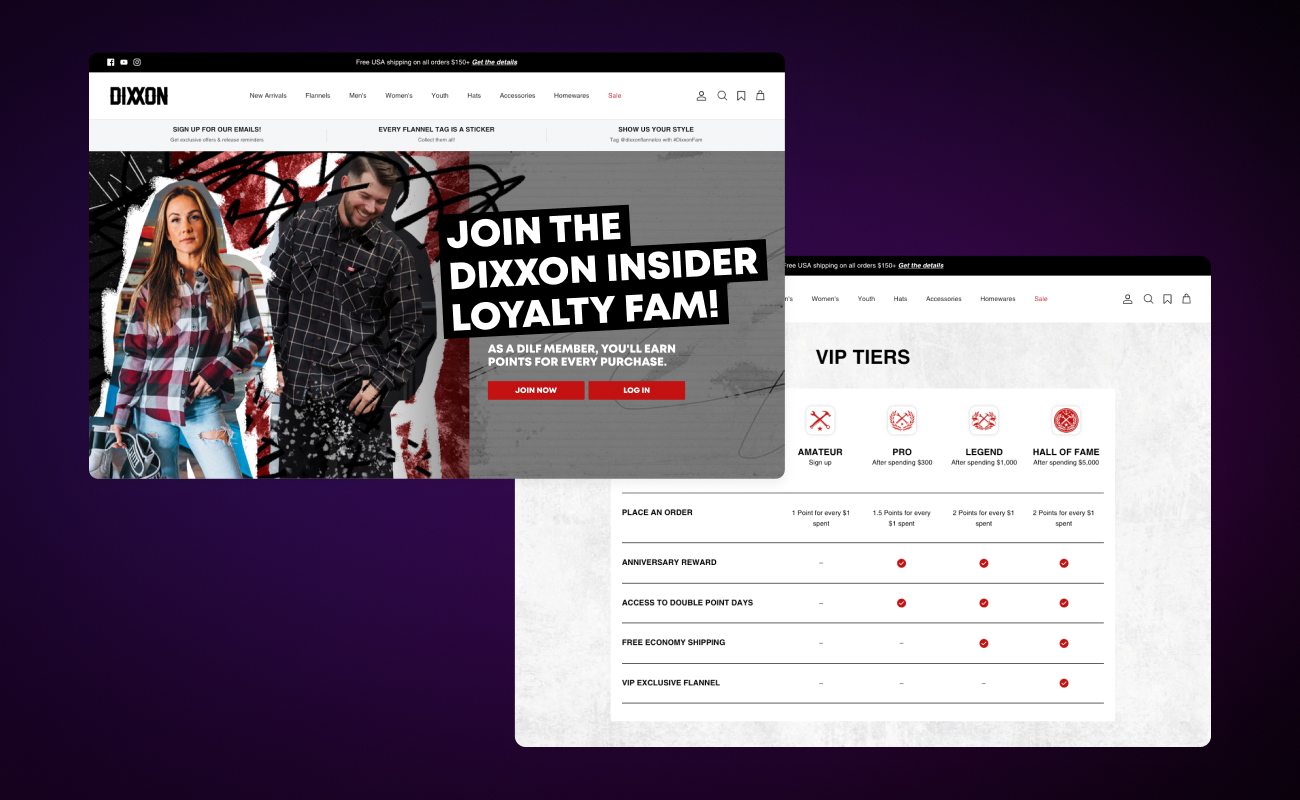
Are your acquisition costs soaring? If so, then loyalty programs can bring the spending down significantly.
A customer loyalty program encourages retention by building loyalty and keeping customers loyal to your brand.
This means you don’t need to focus on only acquisition. But loyalty helps with acquisition. Through a loyalty program, you build stronger relationships and trust, showing appreciation to customers for purchasing from your brand. You can then incentivize these customers to refer your brand to friends and family through your loyalty program.
The incentives in combination with a strong relationship with your brand can help you acquire customers through referrals as opposed to expensive ad campaigns.
Examine how well a loyalty program aligns with your brand’s values and customer experience. A successful loyalty program should enhance the overall brand appeal and seamlessly integrate with the shopping experience. Ensure that the incentives offered resonate with your customers while staying true to your brand.
Jason Anderson said, “Ultimately, you need to take a step back and look at the brand holistically. A lot of loyalty programs that we see merchants launch that aren’t really successful are the ones where someone slaps it on the site, they figured out a cash back rate, and it’s just bronze, silver, and gold VIP tiers. That’s not an engaging brand experience. What’s going to build loyalty is that engaging brand experience.
Anderson adds, “It’s not a negative for a loyalty program to evolve over time, it’s actually encouraged for a program to evolve. If you’re thinking, I would love to do a loyalty program but I do not have the time to create these boutique experiences, create all these amazing offers to make it engaging, that is OK.
“You don’t want to start at the perfect version of your program and then launch it and leave it stagnating after two or three years. You’re much better off taking the customer on a journey and saying, ‘Here’s what it looks like now and here are some things we are going to introduce further down the line.’ That gives people a reason to engage now and to stay engaged in your program in the future.”
Examples of brands creating engaging loyalty program experiences that match their brand while focusing on the customer are SABO and Taste Salud.
SABO created the “Sabo Resort” tiered loyalty program, with a secret VIP fourth tier. This tier has two secret Rule Variations, which are only available to members who reach this tier level. So customers can only find out about the secret benefits to the tier if they continue making repeat purchases within the year.
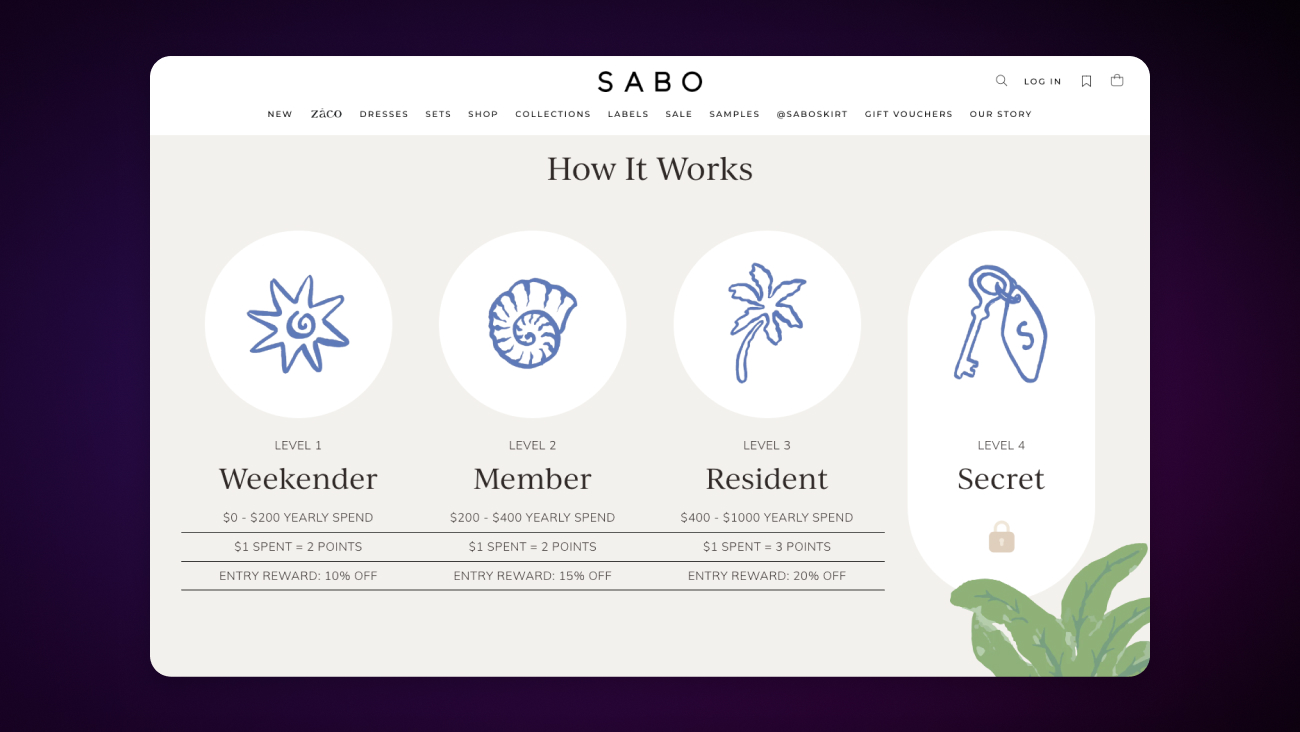
Taste Salud’s loyalty program tiers are named specifically to engage their customers, with the fourth tier named, “After Party.” The brand provides flexible Earning Rules for customers for further engagement. The ways for customers to earn points include sharing on social media, writing a review, and celebrating a birthday.
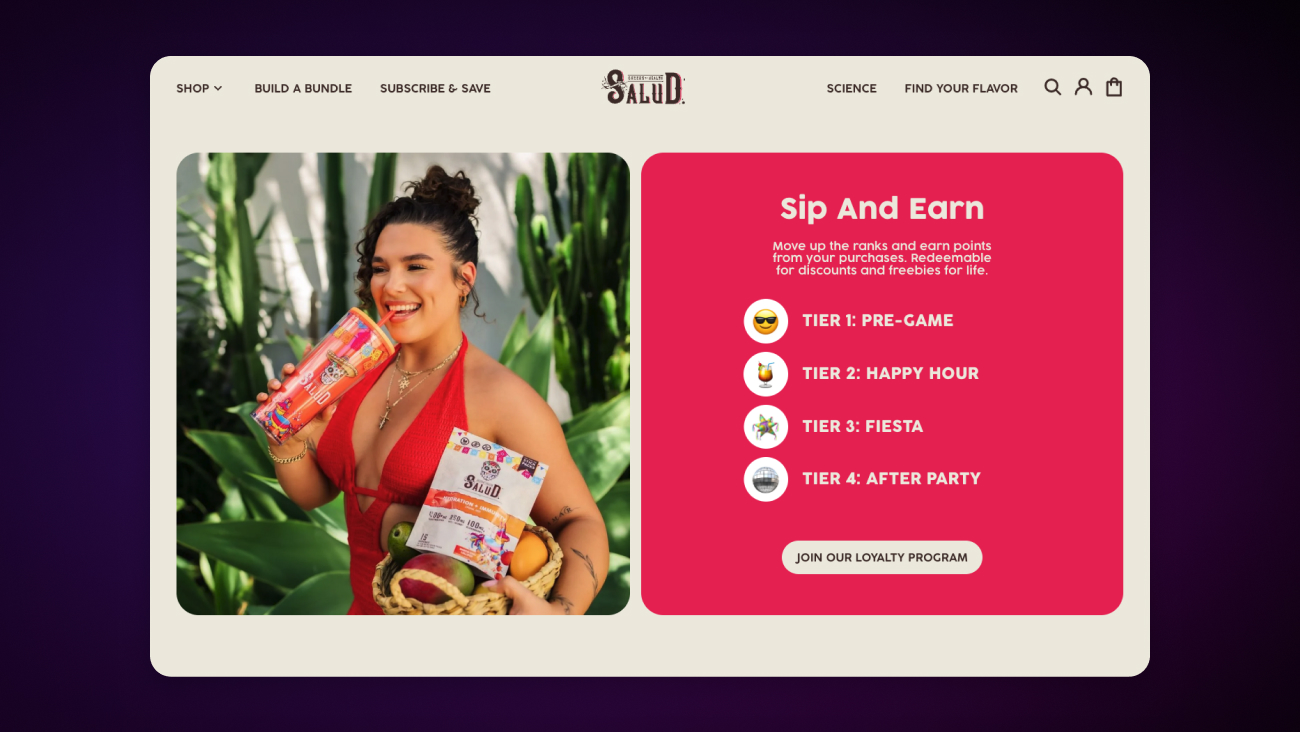
A key consideration before implementing a loyalty program is ensuring that it’s easy to build with strategic support. A solution like Okendo Loyalty makes it easy to build your dream loyalty program, with access to all features no matter what plan you’re on. You also get hands-on guidance from a team of loyalty experts when building your program — from initial setup to ongoing engagement.
You also want a program that can easily integrate with your tech stack. Okendo’s consolidated customer marketing platform combines the power of Loyalty, Reviews, Surveys, Referrals, and Quizzes so you can streamline your workflows with all customer data in one place.
While a loyalty program may provide a pathway to addressing one-time purchase patterns and reducing acquisition costs, it is crucial to approach its design thoughtfully. By thoroughly analyzing customer behavior and considering the above factors, you can determine if a loyalty program is the right move for your Shopify brand.
And even if you decide to move forward with a loyalty program, it’s not set it and forget it. Continuous testing and optimization is key to ensuring its success and effectiveness in driving customer loyalty.
The ultimate goal is not just about increasing sales, but creating a loyal community of Superfans for your brand to drive long-term growth. So take the time to carefully consider all factors before implementing a loyalty program, and continue to evolve your program. Your customers will thank you for it with their continued support and loyalty.
Related articles
Ready to learn more?